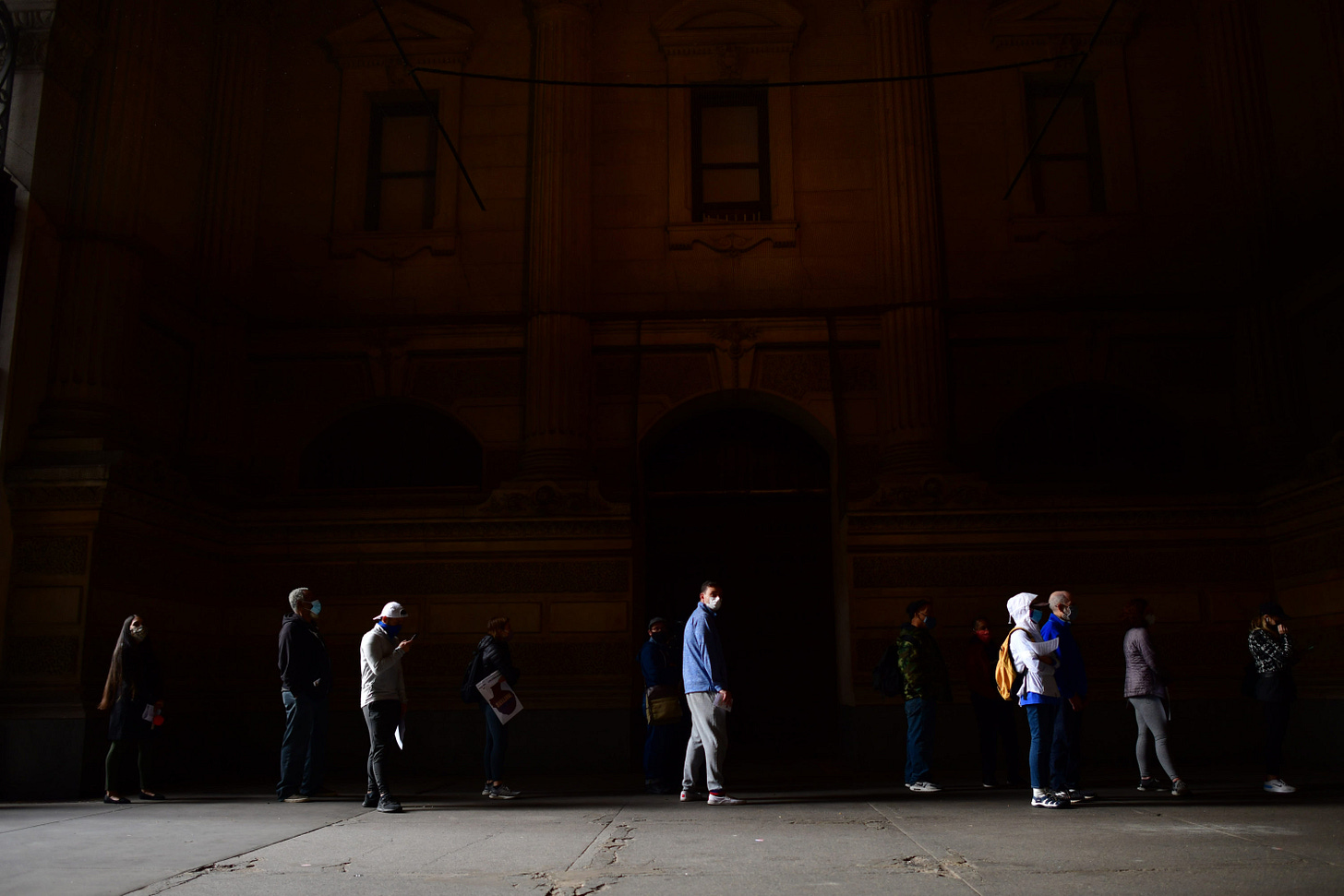Hope Dies Last
On Election Day we dare to believe the best of people.

My best friend and I have an ongoing disagreement about the nature of people. It’s too reductive to say that I think people are generally good and he thinks they are generally bad. But it's fair to say that I spend a lot of time trying to convince him that Trump voters should not collectively be strapped to a Falcon Heavy rocket and launched into the sun.
Having spent the last three years talking to hundreds of 2016 Trump voters—primarily women—during focus group sessions, I believe there is far less cause for despair about the human condition.
Because the simple truth is this: There really are a lot of people who want the Trump, the full Trump, and nothing but the Trump. But these people who attend MAGA rallies, wear the red hats, and treat mask-wearing as an infringement of their most fundamental rights, simply are not enough to form a winning political coalition.
Trump’s 2016 coalition was incredibly tenuous. He brought together just enough white working-class voters with an axe to grind against the establishment, the media, and the libs and traditional GOP voters who—as they regularly tell me—hated Hillary Clinton so much that they took a flyer on the loathsome reality TV star. Many of these traditional Republicans assumed Trump would lose and hoped that, if he didn’t, he might, as a businessman, do some good things for the economy.
Yet even this relatively big tent lost the popular vote by 3 million while lucking into a 77,000 vote Electoral College victory.
And since then, Trump has lost a number of these people.
The first group—the white working-class men—has largely hung in there with the president, botched pandemic response be damned. But the second group is more of a mixed bag.
Yes, most of the traditional Republican voters who held their noses and voted for Trump in 2016 will do so again this time. They like their judges and their tax cuts and their reduced regulations and find the Never Trump types extremely tiresome with all their dire talk about norms, values, and institutions. They’ll say that those people have Trump Derangement Syndrome. Why don’t you all just go be Democrats already!
But here’s the thing: That’s what a lot of now-former Republicans have done.
Politics is about addition, not subtraction. That’s always been true, but it’s especially true when you start out with a coalition that’s 3 million votes in the hole. Trump has never expanded beyond his base and many of those voters who rolled the dice on him in 2016 aren’t coming back for more.
In fact, I went back and surveyed our focus group participants since April. Of the 76 women who voted for Trump in 2016, only 36 are voting for President Trump again; 28 are voting for Joe Biden; 8 are going for Libertarian Jo Jorgensen; and 2 aren’t voting / are writing someone in. (Side note: 30 of these respondents were from Pennsylvania. Only 14 from that group were voting for Trump again.)
Now the participants in my focus groups were all people who voted for the president, but rated him as doing a “very bad job.” So I’m polling from the most disenchanted slice of Trump voters. But the fact is, with more than 60 percent of registered voters saying the country is on the wrong track, there are a lot of disenchanted Trump voters out there. And Trump doesn’t have to lose half of them in order to get roasted. If he were to lose even 2 percent of his 2016 base, then he has no path to victory.
Which brings me to my election prediction—and my general cause for optimism.
I believe Donald Trump is going to lose this election. I believe he is going to lose badly. I believe he is going to take the Republican Senate majority down with him. I believe it will be a defeat of historic proportions that flips a couple formerly taken-for-granted red states.
And I believe all this less because of the polls, and more because I have faith that American voters—currently turning out at unprecedented levels—know that we are better than this. I have faith that my fellow citizens are looking at the wreckage of the last four years and saying “Enough.”
I am romantic about politics and optimistic about people.
That means that I’ve been wrong a lot over the past four years. But I’ve also talked to enough voters to know that hope is not lost, people are mostly good (regardless of who they vote for), and that America is going to be okay.


